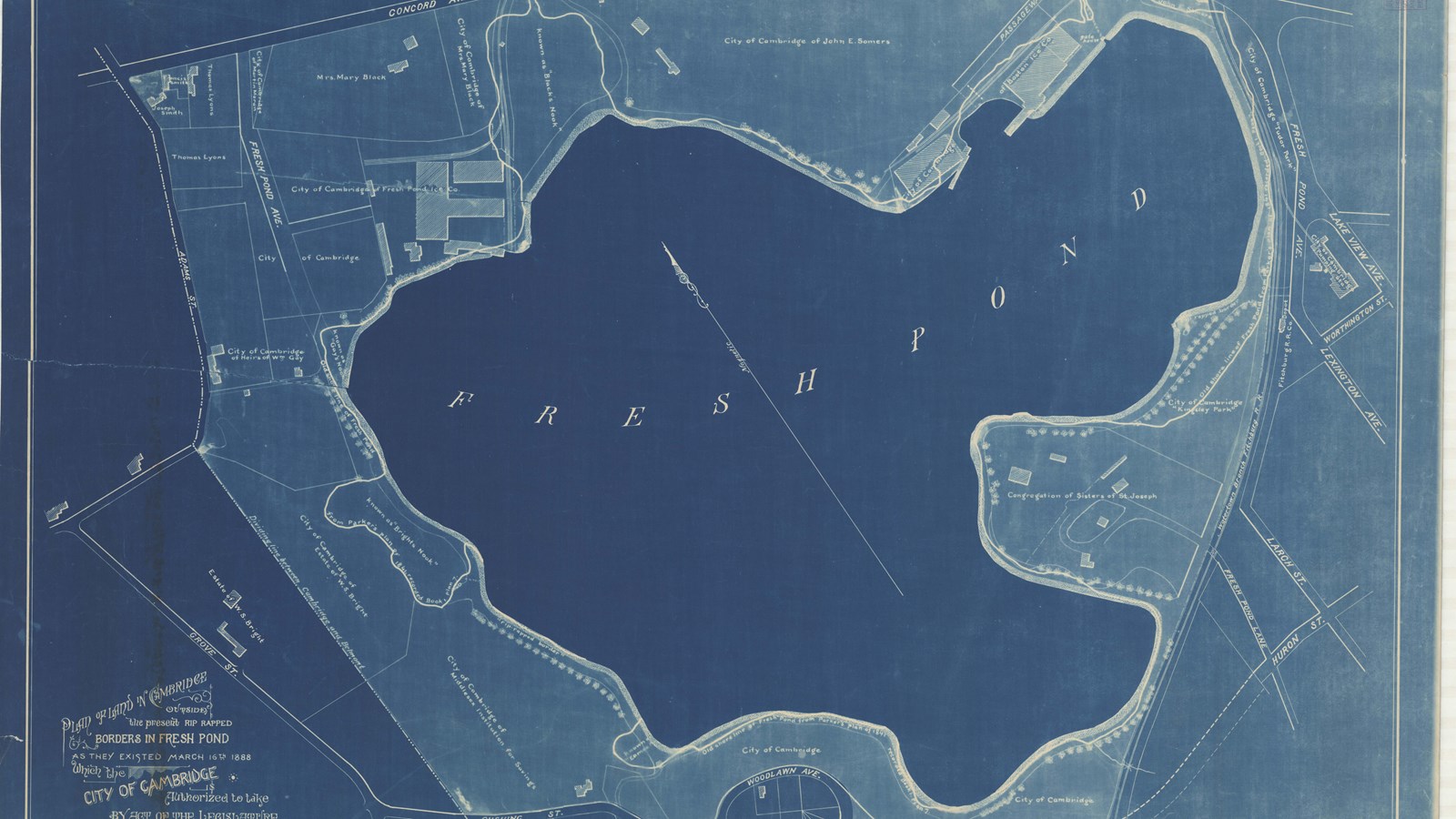Last updated: June 5, 2024
Place
Fresh Pond Parkway

Olmsted Archives
Quick Facts
While work on Fresh Pond Parkway is credited to Olmsted, Olmsted and Eliot, Charles Eliot is deserving of most of the credit for Fresh Pond and Fresh Pond Parkway, and many of the Olmsted designs in Cambridge, Massachusetts. Eliot would be a crucial character in providing a guiding hand for the early activities of the Cambridge Park Commission.
In 1893, after Cambridge acquired Fresh Pond to preserve its water supply, Eliot was invited to inspect the site for a possible park. Eliot observed that “On the west is Fresh Pond, with an area of one hundred and fifty-five acres. Along the whole length of the southern boundary of the city stretches the Charles River … Here is a total of eight hundred acres of permanently open space provided by nature without cost to Cambridge. . . If Cambridge is to invest money in public recreation grounds, a just economy demands that such money shall first be placed where it will bring into use for public enjoyment these now unused and inaccessible spaces with their ample air, light, and outlook.”
Though it happened after Eliot succumbed to spinal meningitis in 1897, Fresh Pond and Fresh Pond Parkway were brought into the public domain. Today, Fresh Pond Parkway is still lined with oaks, as Olmsted, Olmsted and Eliot recommended.
Source: "The Ecological and Social History of Fresh Pond Reservation," City of Cambridge
For more information and primary resources, please visit:
Olmsted Research Guide Online
Olmsted Archives on Flickr
In 1893, after Cambridge acquired Fresh Pond to preserve its water supply, Eliot was invited to inspect the site for a possible park. Eliot observed that “On the west is Fresh Pond, with an area of one hundred and fifty-five acres. Along the whole length of the southern boundary of the city stretches the Charles River … Here is a total of eight hundred acres of permanently open space provided by nature without cost to Cambridge. . . If Cambridge is to invest money in public recreation grounds, a just economy demands that such money shall first be placed where it will bring into use for public enjoyment these now unused and inaccessible spaces with their ample air, light, and outlook.”
Though it happened after Eliot succumbed to spinal meningitis in 1897, Fresh Pond and Fresh Pond Parkway were brought into the public domain. Today, Fresh Pond Parkway is still lined with oaks, as Olmsted, Olmsted and Eliot recommended.
Source: "The Ecological and Social History of Fresh Pond Reservation," City of Cambridge
For more information and primary resources, please visit:
Olmsted Research Guide Online
Olmsted Archives on Flickr
